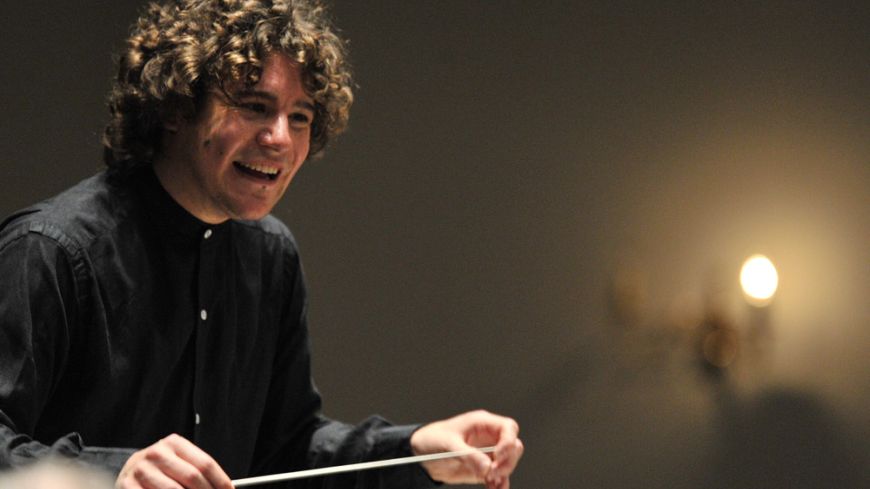
The programme at the Usher Hall consisted of four compositions all written at the turn of the twentieth century, a period in musical history when composers were releasing their creativity from the constraints of classical music. Debussy’s ‘Prelude a l’apres-midi d’un faune’ (the first on the programme) was described by Pierre Boulez as heralding the ‘awakening of modern music.’
Debussy himself said: “The music of this prelude is a very free illustration of Mallarmé's beautiful poem. By no means does it claim to be a synthesis of it. Rather there is a succession of scenes through which pass the desires and dreams of the faun in the heat of the afternoon. Then, tired of pursuing the timorous flight of nymphs and naiads, he succumbs to intoxicating sleep, in which he can finally realize his dreams of possession in universal Nature.”
The Prelude, which begins with the famous haunting flute solo (performed beautifully by the SCO’s principal flautist Aliston Mitchell) was played as an ensemble. Robin Ticciati, the Principal Conductor of the SCO, is a conductor par excellence. A prodigy of Simon Rattle, he succeeded in eliciting from the players the most tender interpretation of this delicate piece.
The same can be said of Schoenberg’s tone poem ‘Verklarte Nacht’ – which was also inspired by a literary work - Richard Dehmet’s poem of the same name ‘Transfigured Night.’
The original score was for a string sextet, but Schoenberg adapted it for string orchestra. Influenced by Wagner’s tale of Triston and Isolde it is one movement, divided into five sections which depict the tale of a couple’s discourse on the agonies of love and at some point during the composition their dialogue is interpreted by the first violin and first viola, which was passionately played by Florian Donderer and Jane Atkins. Again Ticciati’s conducting, combined with the expertise of the musicians, created a sumptuous sound in the dramatic variations in this piece.
The next piece on the programme was by Webern, who in his early years had been a pupil of Schoenberg’s. Webern developed the reputation of being one of the best-known exponents of the twelve-tone technique and his Five Pieces Opus 10 is an enchanting composition, almost minimalistic in style and concludes with an element of frivolity.
Fauré Requiem was the final piece in the programme. One of the most popular choral works it is sung in Latin with two soloists – a baritone and soprano (although in this performance Daniel Doolan sang treble).
Fauré wanted ‘a soothing bass-baritone …who can sustain the calm and gravity that the part requires’ and Thomas Allen, with his deep, rich voice, achieved Fauré’s interpretation of the part effortlessly.
There are seven movements in the Requiem – the most famous being Pie Jesu, which was sung to perfection my Daniel Doolan. And the National Youth Choir of Scotland, under chorus master Christopher Bell, was sublime, particularly in the final In Paradisum passage. A memorable performance.
Event: 17th August 2013

